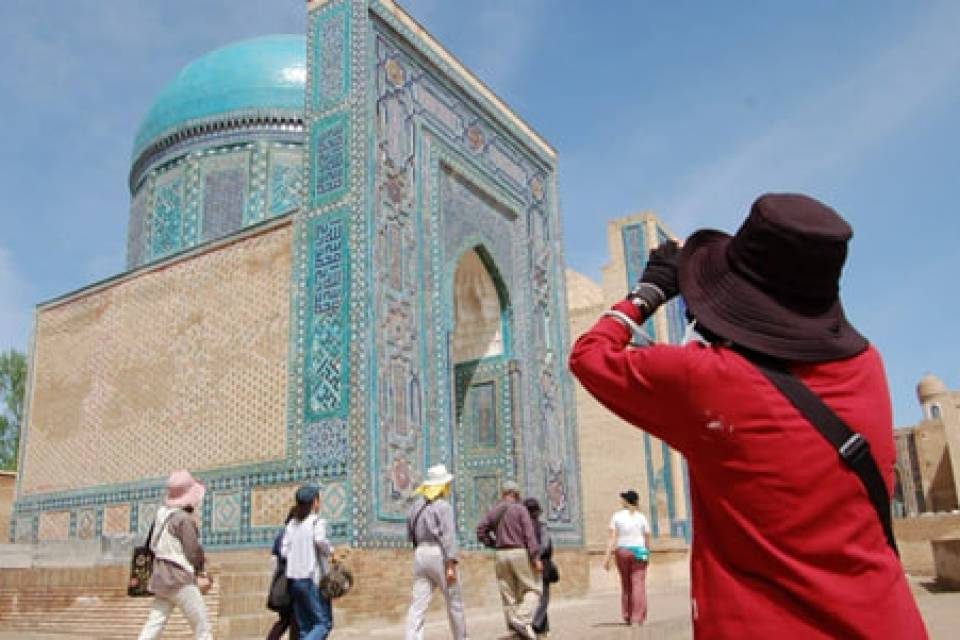Members of the Government spotlight strategic objectives for the future
In the first quarter of 2016, gross domestic product grew by 7.5%. The numbers were presented at a session of the Government of Uzbekistan to sum up the outcomes of socio-economic development in January-March, and assess the implementation of major directions and priorities of economic program for 2016.
The session reviewed and analyzed the key indicators of macroeconomic development, and the outcomes of medium-term programs on further reformation, structural reforms and modernization of the economy and its sectors, accelerated development and upgrade of engineering, communication and road infrastructure, ensuring of reliable protection of private property, entrepreneurship and small business, as well as improving employment and living standards of the population.
Despite the ongoing crisis in the global economy, Uzbekistan has maintained the sustainable economic growth and macroeconomic balance. In the first quarter of the current year, the industrial production increased by 7%, agriculture production – by 6.7%, retail turnover – by 12.8%. The state budget was executed with a surplus of 0.1% of GDP. Inflation has not exceeded the estimated parameters.
The measures taken to provide the advanced development of modern types of services, which are primarily based on information and communication technologies, have ensured the growth of the volume of services by 12.1%, and increased their share in GDP to 59.5%, against 59.3% in the first quarter of 2015.
The continued measures on stimulation of small business development, the further improvement of conditions for establishment and doing business have contributed to the creation of 8,400 new small businesses, which is 5.5% more YOY. Since the beginning of the current year, small businesses have obtained bank loans totaling 3.6 trillion soums, with the 1.3 time increase.
Upwards of 167,000 new jobs, including 57.7% of jobs in rural areas, have been created under the Job Creation and Employment Program for 2016.
Members of the government attached importance to the detailed analysis of the progress and effectiveness of implementation of the priority tasks on further enhnancement of structural reforms, modernization and diversification of industrial production, including successive intensification of processing of domestic raw material resources, expansion of volumes and range of high added value products, and accelerated development of industrial capacity of regions. Currently, nearly 80% of the growth of industrial production is provided by manufacturing industries.
The intensive investment policy on continuous technological and technical upgrade of industrial production, rapid expansion of the industrial production, advanced development of social and production infrastructure has provided 8.5-percent growth of investments, including 14.4% of foreign investment growth. 368 new investment projects have been launched under the Investment Program for 2016. Construction and reconstruction contracts were signed under the established procedure. The production of 37 new kinds of localized products is underway.
Development of road, transport, engineering, communication and social infrastructure, and rural housing construction has been in progress. The construction of new electrified railway Angren-PAP is nearing completion. A project on the electrification of the Samarkand-Bukhara railway line and establishment of high-speed traffic of passenger trains is carried out at an accelerated rate. Over 500 km of fiber-optic broadband networks have been built and reserved. The construction and arrangement of 13,000 new comfortable standard design individual houses has been launched in rural residential areas.
In an effort to intensify these processes and increase demand for construction work, the government instructed specialized agencies and departments to take measures and ensure the establishment of over 400 new, financially stable and well equipped construction and installation organizations in the regions in 2016.
Members of the government comprehensively analyzed the effectiveness of ongoing measures on diversification of the structure and expansion of the range of exports, development of new export markets, thereby ensuring the achievement of export forecasts for 2016. Despite a sharp decline in demand and tough competition on the world markets, the effective measures Uzbekistan has been taking to stimulate exporters and support them in promoting their products in foreign markets, have helped to maintaining the growth trends in exports and a positive balance of foreign trade turnover. 583 new enterprises have been involved in exports since the beginning of the current year. Ninety-five new kinds of products have been exported.
Another issue under scrutiny was the implementation of measures aimed at attracting foreign investors to the charter capital of joint stock companies and corporate governance, as well as radical reduction of state intervention in the economy through the sale of state shares and assets, including at zero redemption rate. During the first quarter of this year, 178 state assets were converted into private property. Investment obligations on them amounted to about 216 billion soums. The number of joint stock companies with state share in authorized funds decreased to 209 against 378 in the same period of 2015.
Heads of the Cabinet of Ministers, ministries, departments, economic associations, large enterprises and local executive authorities pointed out to the need to develop and implement a range of additional measures to reveal and mobilize all the available reserves for increasing export sales, open new outlets, enhance the support for exporter enterprises, and comprehensively encourage new industrial enterprises, farms, small businesses and private enterprises for participation in exports.
The session reviewed the progress of the measures on channeling foreign investments in the authorized capital of joint-stock companies and in corporate governance, as well as on radical reduction of involvement of the government in the economy through selling state shares and assets, including the assets at zero redemption value. As noted at the session, in the first quarter 178 state assets were sold to private owners, assuming investment commitments at nearly 216 billion soums. The number of joint stock companies with state share in the authorized funds decreased to 209 against 378 in a similar period in 2015.


























